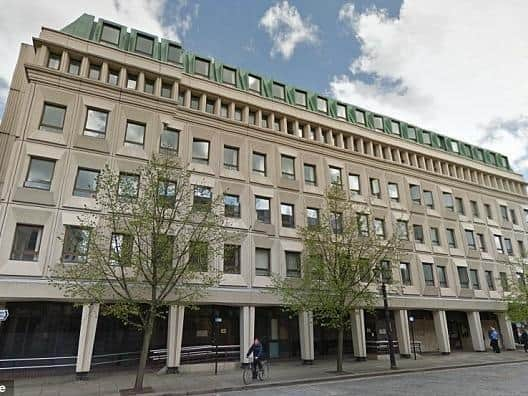Lessons on drugs for 999 call handlers after man's death at Wigan Infirmary
and live on Freeview channel 276
While North West Ambulance Service has a list of phrases used to refer to illegal substances, the woman who answered 37-year-old Lee Hamill’s call was not familiar with the words he used.
But an inquest heard the type of drug he had taken would not have affected the way staff responded to him.
Advertisement
Hide AdAdvertisement
Hide AdAnd despite debate about the way his call was prioritised, senior coroner Timothy Brennand did not believe paramedics coming to his aid sooner would have prevented the drug-induced cardiac arrest which contributed to his death.


Bolton Coroner’s Court was told Mr Hamill called 999 at 1.49am on February 9 from his home on Beeston Grove in Higher Folds.
He was distressed, said he could not breathe and the call handler struggled to hear him.
She thought Mr Hamill said he had overdosed on “swede” and tried to clarify if he meant “weed”, referring to cannabis.
Advertisement
Hide AdAdvertisement
Hide AdBut he said that was not what he meant and used “swede” again, along with “whizz” - a term the call handler did not recognise.
The inquest heard it was likely Mr Hamill had said “speed” and that he used the full word “amphetamine” during a second emergency call.
Angela Lee, service delivery manager for the ambulance service’s emergency operations centre for Greater Manchester, explained the call handler had since undergone a refresher on drug terms and this would be rolled out across the control rooms.
The ambulance service prioritises calls using four categories, with one being the most serious.
Advertisement
Hide AdAdvertisement
Hide AdMr Hamill’s call was placed in category three, as he was judged to be alert and breathing, which meant nine out of 10 cases would receive an ambulance within two hours.
An ambulance was allocated at 2.32am, but was diverted to a category one call, before another was sent at 3.23am.
Mr Hamill phoned 999 again at 3.37am, reporting his condition had worsened and he felt he was going to die.
The call handler stayed on the phone until paramedics arrived at 3.45am.
Advertisement
Hide AdAdvertisement
Hide AdMr Hamill answered the door, but soon after he had a seizure lasting for 90 seconds, after which he had irregular and slow breathing, then went into cardiac arrest.
Paramedics worked to resuscitate him and he was taken to Wigan Infirmary.
He was treated on the intensive care unit, but he failed to recover any neurological function and was given palliative care. He died on March 9.
His cause of death was pneumonia, after hypoxic brain injury following cardiac arrest, after taking amphetamine.
Advertisement
Hide AdAdvertisement
Hide AdAn audit of the first call found Mr Hamill was slurring his words so should not have been considered to be alert. This meant it should have been in category two, where the aim is to respond in 18 minutes, with nine out of 10 callers receiving an ambulance in 40 minutes. But Mrs Lee did not agree and the call was referred to the US-based International Academy of Emergency Dispatchers, which said Mr Hamill was alert and it was a category three response.
An ambulance went to a category two call at 2.11am, which would have been sent to Mr Hamill instead if his call had been a higher priority.
Mr Brennand did not agree with assertions from Mr Hamill’s father that the call should have been ranked as category one.
He said that while an ambulance may have arrived sooner if the call was placed in category two, Mr Hamill may have had the cardiac arrest while en route to A&E or waiting outside the hospital.
Advertisement
Hide AdAdvertisement
Hide Ad“It seems to me that he was, in any event, always a candidate for a sudden and unexpected cardiac event,” Mr Brennand said.
He concluded that Mr Hamill died as a combination of naturally-occuring disease and the effects of a brain injury following a drug-induced cardiac arrest.
Thanks for reading. If you value what we do and are able to support us, a digital subscription is just £1 for your first month. Try us today by clicking here